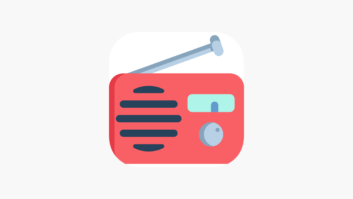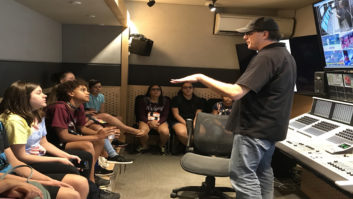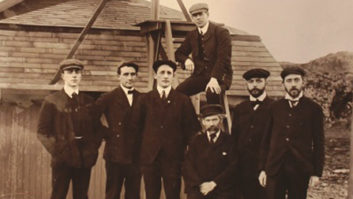Summer has come to all of North America now�even though it arrived long ago out west.
Along with vacation, another great thing about summer is the more relaxed nature of transmitter site visits. No snow and ice to contend with in June or July (I hope).
What are the types of transmitter site projects best suited for summertime?
We�ll take a look at them this time around.
GROUNDS MAINTENANCE

If you have an AM site, spring and summer introduce a whole new set of �weeds� and other bushes growing in the field(s) around your tower or towers. I recommend finding a landscape maintenance service to take care of them.
There are a few things to keep in mind, however:
� Don�t expect the weeds at the base of the towers to be removed by contractors. There are too many RFR hazards to contend with. You�ll have to deal with the ground inside the locked tower fences yourself.
� Make sure you know the methodology used by whomever you hire for weed abatement and overall mowing of the property. Just double check that they aren�t doing anything that could damage your ground system, like using shovels or pickaxes.
As the years go by, you�ll find having a set of contractors for projects like this is ideal. If the crew you used last year did a good job, by all means, have them back the following year and the year after. Consistency is very important when it comes to the routine projects.
Do you own the road to any of your transmitter sites? Undoubtedly they�ve developed potholes, ruts and other impediments over the winter. Summer is a good time to get those repaired because the types of companies that do that sort of work are busier in the wintertime�ultimately meaning their rates are more expensive, of course. If you want to economize on projects such as these, common sense says that you should get them carried out while there isn�t as much work, overall, in your area.
ROOF MAINTENANCE

This would mainly apply to you, of course, if you own the building that houses the transmitter site. As I said, if you want to economize on contractors, you need to engage them when they�re not busy, or, at least, when they�re at their least busy time of the year. From where I sit in California, it makes sense to work on roofs when it isn�t raining out. Although weather could certainly be different in other parts of the country.
Many engineers are probably not familiar in the ways of dealing with contractors. When it comes to working with roofers (or contractors in general), you should always strive for multiple bids on jobs.
Here are my recommended steps:
� Define exactly what it is you want to do. Have it written down, if necessary.
� Always try to obtain at least three bids. Part of the reason you want to define exactly what you need is so that you can be consistent from contractor to contractor in explaining it. If you tell two or three different contactors two or three different things, then comparing bids is a waste of time.
� Throw out very high or very low bids. Getting multiple bids shows you how realistic they are. Quite often, you�ll get a very high one, or a very low one; likely you can throw those out. When the bids come back fairly close to one another in price, then you can start having some confidence in them. Make sure you compare them for what is included, and what is not included, as well.
AIR CONDITIONING MAINTENANCE

Early summer is usually a good time for air conditioning service because it hasn�t gotten really hot yet, right? I know that varies across the country. I also know that in many regions, air conditioners are in constant use, no matter the season.
Often, air conditioning problems aren�t dealt with until something is �broken� and the transmitter space is 100 degrees Fahrenheit (or more). I hope this is not your methodology; there are plenty of routine maintenance items for air conditioners. (I�m referring to ones that use air for the heat exchange, by the way�not chilled water.)
These include:
� Filter replacement. Hopefully you aren�t just doing this annually.
� Coil cleaning. Most air conditioning guys seem to call it the �coil,� but to my mind it�s more like a radiator. Air gets blown across it as part of the heat exchange mechanism. With all the air, comes dirt; and when it gets dirty, its ability to exchange heat with the air diminishes. Get this coil cleaned once per year (summertime would work fine for that).
� Condensate drain plugs. If you have condensate pans, make sure that the drains are clear.
� Gas pressure. Slow leaks can occur over the course of a year. Hopefully when your A/C service people come by, they bring and use the pressure gauges to make sure the gas pressure is within tolerance.
� Bad bearings. You can get a fairly good idea about the shape that the bearings in blowers and motors are in by simply listening to them, and feeling for vibrations. Replacing bearings is usually quite expensive, so again, if you can figure out when the A/C repair guys are not quite as busy, it makes sense to do the work then.
� Test emergency service. Occasionally, you should call your A/C service company after-hours to make sure that the number you have is correct and to see how responsive they are. Don�t wait until there is a real problem, on a Friday night before a holiday weekend, to discover that you have the wrong number for them, or that they never call you back.
GENERATOR MAINTENANCE

In that window of time between wintertime power outages and summertime power outages, you might find that your generator service company has time for some routine maintenance at your site. It�s very much like air conditioning maintenance; see to it that they take care of the routine maintenance procedures specified by the (engine) manufacturer. Again, I recommend calling them after-hours at some point, making sure you have the right number, and ensuring they actually respond.
Load bank tests are usually done once per year, at most. Letting the generator get up to full temperature, for several hours, at its rated load, will instill confidence.
Fuel polishing is another item to consider for your summertime maintenance. It�s the removal of non-combustible particulate matter, microbial contamination, sediments and water. The difference between fuel polishing and fuel filtration is that polishers break down combustible solids so that the fuel stays within industry specs; fuel filters simply pull all the solids out. Some of those solids actually add lubricity to the fuel and make up part of the BTU value; continual filtering can remove them completely, which is not the real goal, according todieselfueldoctor.com. The polishing process is somewhat elaborate�see Fig. 3. We had this process done recently at one of our transmitter sites�Fig. 4 shows the bucket of �stuff� that was removed from just 300 gallons of diesel.
INFRARED TESTING
If you have a generator, then you have an automatic transfer switch. It�s a good idea, once yearly, to do infrared testing on all the electrical panels inside of the transmitter site. Running the generator, switched over to the load, is wise at this point because you can also carry out the IR testing on connections and wires that are not typically used�namely, the �emergency� wires and contacts inside of the ATS.
So there you have it: An entire list of things to take care of during that wonderful period of the year. Sure, you can do any of these things at any time of the year, really�but why put it off until the weather is bad? If you want to make your work life a little easier, then apply some common sense and hard-won experience.
Eliminate potential sources of stress�plan ahead to have the all the sites in order before those holiday weekends or vacations. It�s a good way to keep that phone from ringing.












